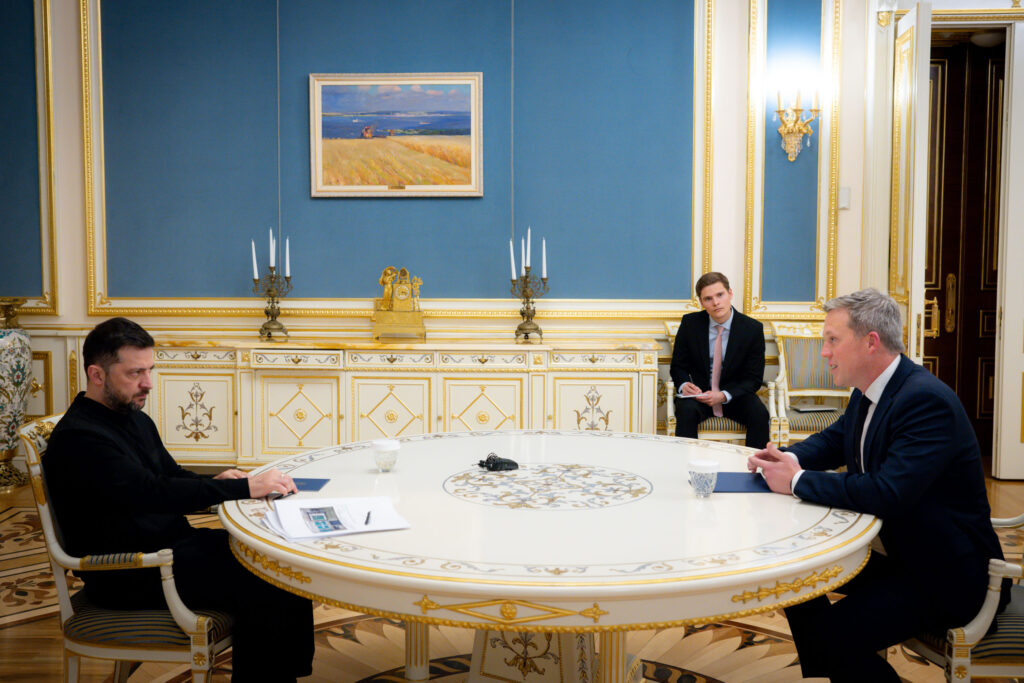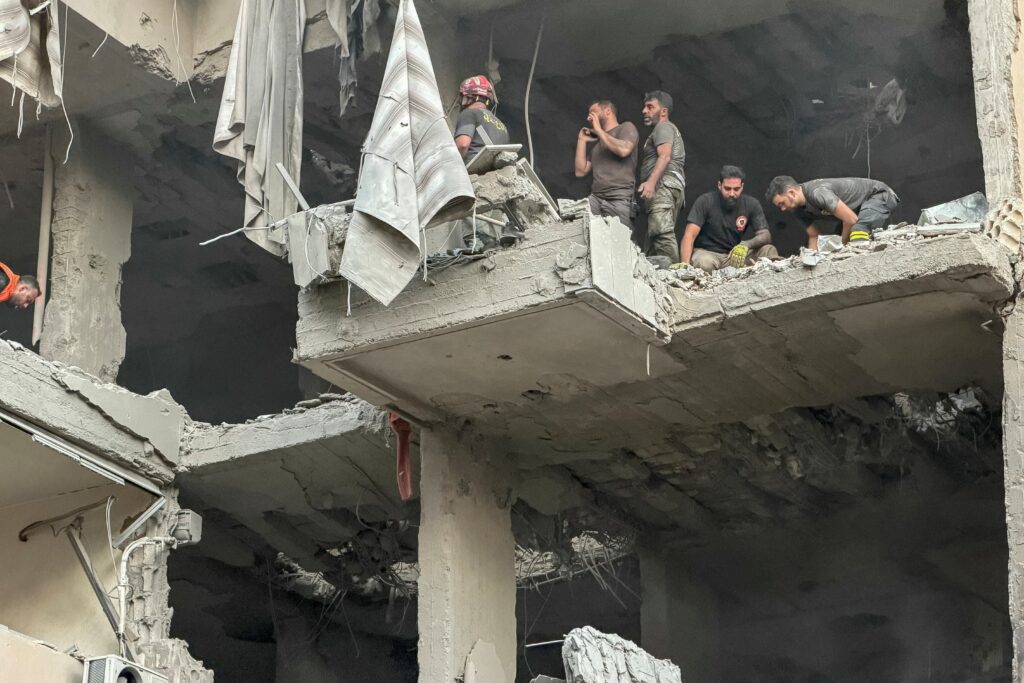Les municipales seront un “galop d’essai” pour LFI avant 2027, prévient Mélenchon
La France insoumise a officiellement lancé dimanche sa campagne pour les municipales de 2026 avec un meeting en Seine-Saint-Denis où son leader Jean-Luc Mélenchon a placé ces différents scrutins locaux dans la perspective de l’élection présidentielle qui suivra, en vantant notamment son concept de la “Nouvelle France”.”Ce seront des élections politiques du fait du contexte actuel (…) nous serons à un an de l’élection présidentielle, dont ceci pourrait bien être un galop d’essai. Cette élection peut donc préfigurer le monde que nous voulons commencer”, a lancé le fondateur de LFI devant une foule de 2.000 militants, selon l’organisation, réunie aux Docks de Paris, une salle d’Aubervilliers. “Il s’agit d’élever le niveau de conscience et de faire de cette élection un temps fort d’éducation politique populaire de masse, car nous en aurons besoin en 2027, si la France nous choisit pour gouverner le pays”, a ajouté le triple candidat à la présidentielle, qui est pressenti pour représenter une nouvelle fois l’écurie LFI à la prochaine course à l’Elysée.Les municipales ne seront “pas seulement des campagnes locales, il y a aussi des orientations communes à porter sur l’ensemble du territoire”, a appuyé devant la presse le coordinateur national de LFI, Manuel BompardLors d’un discours plutôt théorique, Jean-Luc Mélenchon a une nouvelle fois fait l’éloge de son concept de “Nouvelle France”, une société plus urbaine et plus métissée.”Notre Nouvelle France est là: nouvelle comme sa population, sa façon de vivre, sa vie, sa créolisation et par-dessus tout son appétit du futur”, a énuméré l’ancien sénateur socialiste, dont la formation compte sur la jeunesse et les quartiers populaires pour l’amener vers la victoire. Si le fondateur du mouvement Insoumis s’est gardé de porter des coups aux autres partis de gauche, ses lieutenants n’ont pas eu la même réserve.- Préparer les sénatoriales -La députée Nadège Abomangoli, vice-présidente de l’Assemblée nationale, a ainsi ouvert le meeting en fustigeant ceux à gauche “qui veulent des voix des Insoumis mais pas d’élus Insoumis”, une manière de viser notamment le PS.”Celles et ceux qui votent pour La France insoumise depuis dix ans ont le droit d’être représentés”, a-t-elle insisté.Pour les municipales de mars 2026, LFI sera présente, en tête de liste ou en soutien à une liste, dans à peu près 500 villes, dont 80% des communes de plus de 30.000 habitants. Et dans la grande majorité des cas, les Insoumis présenteront leurs propres listes, sans s’unir avec les Ecologistes, le Parti socialiste ou le Parti communiste.La formation de gauche radicale n’espère pas gagner énormément de mairies, seulement deux ou trois, mais entend pénétrer massivement dans les conseils municipaux.LFI avait en effet enjambé les scrutins municipaux de 2020 et ne dirige donc actuellement que deux villes de plus de 5.000 habitants.Gagner des conseillers municipaux permettrait au mouvement, qui ne compte aucun élu au Sénat, de se positionner pour les prochaines élections sénatoriales, de 2026 et 2029, où ce sont les grands électeurs qui votent. “Message à tous ceux qui pensent pouvoir nous évincer de leurs combinaisons d’appareil: La France insoumise préparera les prochaines élections sénatoriales en même temps que l’élection présidentielle”, a ainsi prévenu le député Paul Vannier, en charge des élections au sein de l’appareil mélenchoniste.Dans beaucoup de municipalités, les tensions à gauche laissent présager d’âpres négociations de second tour, où le score nécessaire pour se maintenir est de 10% et celui pour fusionner avec une autre liste est de 5%. “Partout où nous serons en tête au soir du premier tour, nous proposerons aux autres listes de gauche prêtes à défendre avec nous un programme de rupture, de nous retrouver”, a appuyé Paul Vannier. Pour les municipales, les Insoumis comptent s’appuyer sur leurs bons scores dans les banlieues populaires et les grandes métropoles: la direction du mouvement a identifié Roubaix (Nord), La Courneuve (Seine-Saint-Denis) ou encore Evry (Essonne) comme commune où la victoire serait un objectif crédible.Ils entendent notamment proposer le développement de la régie publique de l’eau, celui des cantines scolaires gratuites et biologiques, ou la mise en place d’un référendum d’initiative citoyenne (RIC) municipal.
Les municipales seront un “galop d’essai” pour LFI avant 2027, prévient Mélenchon
La France insoumise a officiellement lancé dimanche sa campagne pour les municipales de 2026 avec un meeting en Seine-Saint-Denis où son leader Jean-Luc Mélenchon a placé ces différents scrutins locaux dans la perspective de l’élection présidentielle qui suivra, en vantant notamment son concept de la “Nouvelle France”.”Ce seront des élections politiques du fait du contexte actuel (…) nous serons à un an de l’élection présidentielle, dont ceci pourrait bien être un galop d’essai. Cette élection peut donc préfigurer le monde que nous voulons commencer”, a lancé le fondateur de LFI devant une foule de 2.000 militants, selon l’organisation, réunie aux Docks de Paris, une salle d’Aubervilliers. “Il s’agit d’élever le niveau de conscience et de faire de cette élection un temps fort d’éducation politique populaire de masse, car nous en aurons besoin en 2027, si la France nous choisit pour gouverner le pays”, a ajouté le triple candidat à la présidentielle, qui est pressenti pour représenter une nouvelle fois l’écurie LFI à la prochaine course à l’Elysée.Les municipales ne seront “pas seulement des campagnes locales, il y a aussi des orientations communes à porter sur l’ensemble du territoire”, a appuyé devant la presse le coordinateur national de LFI, Manuel BompardLors d’un discours plutôt théorique, Jean-Luc Mélenchon a une nouvelle fois fait l’éloge de son concept de “Nouvelle France”, une société plus urbaine et plus métissée.”Notre Nouvelle France est là: nouvelle comme sa population, sa façon de vivre, sa vie, sa créolisation et par-dessus tout son appétit du futur”, a énuméré l’ancien sénateur socialiste, dont la formation compte sur la jeunesse et les quartiers populaires pour l’amener vers la victoire. Si le fondateur du mouvement Insoumis s’est gardé de porter des coups aux autres partis de gauche, ses lieutenants n’ont pas eu la même réserve.- Préparer les sénatoriales -La députée Nadège Abomangoli, vice-présidente de l’Assemblée nationale, a ainsi ouvert le meeting en fustigeant ceux à gauche “qui veulent des voix des Insoumis mais pas d’élus Insoumis”, une manière de viser notamment le PS.”Celles et ceux qui votent pour La France insoumise depuis dix ans ont le droit d’être représentés”, a-t-elle insisté.Pour les municipales de mars 2026, LFI sera présente, en tête de liste ou en soutien à une liste, dans à peu près 500 villes, dont 80% des communes de plus de 30.000 habitants. Et dans la grande majorité des cas, les Insoumis présenteront leurs propres listes, sans s’unir avec les Ecologistes, le Parti socialiste ou le Parti communiste.La formation de gauche radicale n’espère pas gagner énormément de mairies, seulement deux ou trois, mais entend pénétrer massivement dans les conseils municipaux.LFI avait en effet enjambé les scrutins municipaux de 2020 et ne dirige donc actuellement que deux villes de plus de 5.000 habitants.Gagner des conseillers municipaux permettrait au mouvement, qui ne compte aucun élu au Sénat, de se positionner pour les prochaines élections sénatoriales, de 2026 et 2029, où ce sont les grands électeurs qui votent. “Message à tous ceux qui pensent pouvoir nous évincer de leurs combinaisons d’appareil: La France insoumise préparera les prochaines élections sénatoriales en même temps que l’élection présidentielle”, a ainsi prévenu le député Paul Vannier, en charge des élections au sein de l’appareil mélenchoniste.Dans beaucoup de municipalités, les tensions à gauche laissent présager d’âpres négociations de second tour, où le score nécessaire pour se maintenir est de 10% et celui pour fusionner avec une autre liste est de 5%. “Partout où nous serons en tête au soir du premier tour, nous proposerons aux autres listes de gauche prêtes à défendre avec nous un programme de rupture, de nous retrouver”, a appuyé Paul Vannier. Pour les municipales, les Insoumis comptent s’appuyer sur leurs bons scores dans les banlieues populaires et les grandes métropoles: la direction du mouvement a identifié Roubaix (Nord), La Courneuve (Seine-Saint-Denis) ou encore Evry (Essonne) comme commune où la victoire serait un objectif crédible.Ils entendent notamment proposer le développement de la régie publique de l’eau, celui des cantines scolaires gratuites et biologiques, ou la mise en place d’un référendum d’initiative citoyenne (RIC) municipal.
Les municipales seront un “galop d’essai” pour LFI avant 2027, prévient Mélenchon
La France insoumise a officiellement lancé dimanche sa campagne pour les municipales de 2026 avec un meeting en Seine-Saint-Denis où son leader Jean-Luc Mélenchon a placé ces différents scrutins locaux dans la perspective de l’élection présidentielle qui suivra, en vantant notamment son concept de la “Nouvelle France”.”Ce seront des élections politiques du fait du contexte actuel (…) nous serons à un an de l’élection présidentielle, dont ceci pourrait bien être un galop d’essai. Cette élection peut donc préfigurer le monde que nous voulons commencer”, a lancé le fondateur de LFI devant une foule de 2.000 militants, selon l’organisation, réunie aux Docks de Paris, une salle d’Aubervilliers. “Il s’agit d’élever le niveau de conscience et de faire de cette élection un temps fort d’éducation politique populaire de masse, car nous en aurons besoin en 2027, si la France nous choisit pour gouverner le pays”, a ajouté le triple candidat à la présidentielle, qui est pressenti pour représenter une nouvelle fois l’écurie LFI à la prochaine course à l’Elysée.Les municipales ne seront “pas seulement des campagnes locales, il y a aussi des orientations communes à porter sur l’ensemble du territoire”, a appuyé devant la presse le coordinateur national de LFI, Manuel BompardLors d’un discours plutôt théorique, Jean-Luc Mélenchon a une nouvelle fois fait l’éloge de son concept de “Nouvelle France”, une société plus urbaine et plus métissée.”Notre Nouvelle France est là: nouvelle comme sa population, sa façon de vivre, sa vie, sa créolisation et par-dessus tout son appétit du futur”, a énuméré l’ancien sénateur socialiste, dont la formation compte sur la jeunesse et les quartiers populaires pour l’amener vers la victoire. Si le fondateur du mouvement Insoumis s’est gardé de porter des coups aux autres partis de gauche, ses lieutenants n’ont pas eu la même réserve.- Préparer les sénatoriales -La députée Nadège Abomangoli, vice-présidente de l’Assemblée nationale, a ainsi ouvert le meeting en fustigeant ceux à gauche “qui veulent des voix des Insoumis mais pas d’élus Insoumis”, une manière de viser notamment le PS.”Celles et ceux qui votent pour La France insoumise depuis dix ans ont le droit d’être représentés”, a-t-elle insisté.Pour les municipales de mars 2026, LFI sera présente, en tête de liste ou en soutien à une liste, dans à peu près 500 villes, dont 80% des communes de plus de 30.000 habitants. Et dans la grande majorité des cas, les Insoumis présenteront leurs propres listes, sans s’unir avec les Ecologistes, le Parti socialiste ou le Parti communiste.La formation de gauche radicale n’espère pas gagner énormément de mairies, seulement deux ou trois, mais entend pénétrer massivement dans les conseils municipaux.LFI avait en effet enjambé les scrutins municipaux de 2020 et ne dirige donc actuellement que deux villes de plus de 5.000 habitants.Gagner des conseillers municipaux permettrait au mouvement, qui ne compte aucun élu au Sénat, de se positionner pour les prochaines élections sénatoriales, de 2026 et 2029, où ce sont les grands électeurs qui votent. “Message à tous ceux qui pensent pouvoir nous évincer de leurs combinaisons d’appareil: La France insoumise préparera les prochaines élections sénatoriales en même temps que l’élection présidentielle”, a ainsi prévenu le député Paul Vannier, en charge des élections au sein de l’appareil mélenchoniste.Dans beaucoup de municipalités, les tensions à gauche laissent présager d’âpres négociations de second tour, où le score nécessaire pour se maintenir est de 10% et celui pour fusionner avec une autre liste est de 5%. “Partout où nous serons en tête au soir du premier tour, nous proposerons aux autres listes de gauche prêtes à défendre avec nous un programme de rupture, de nous retrouver”, a appuyé Paul Vannier. Pour les municipales, les Insoumis comptent s’appuyer sur leurs bons scores dans les banlieues populaires et les grandes métropoles: la direction du mouvement a identifié Roubaix (Nord), La Courneuve (Seine-Saint-Denis) ou encore Evry (Essonne) comme commune où la victoire serait un objectif crédible.Ils entendent notamment proposer le développement de la régie publique de l’eau, celui des cantines scolaires gratuites et biologiques, ou la mise en place d’un référendum d’initiative citoyenne (RIC) municipal.
Trump blasts Ukraine for ‘zero gratitude’ amid talks to halt war
US President Donald Trump on Sunday accused Ukraine again of lacking “gratitude” for Washington’s support against Russia’s invasion, as top US and Ukrainian representatives met in Geneva for talks on a proposal to halt the war.”UKRAINE ‘LEADERSHIP’ HAS EXPRESSED ZERO GRATITUDE FOR OUR EFFORTS,” Trump wrote on his Truth Social platform, also blasting European countries for not doing enough to stop the war, but offering no direct condemnation of Moscow.His comments came as US Secretary of State Marco Rubio was meeting with top Ukrainian officials in a wintery Geneva Sunday to discuss the US president’s controversial 28-point plan for ending the nearly four-year conflict.The Ukrainian delegation, headed by Andriy Yermak, also met with high-level officials from Britain, France and Germany in the Swiss city, as European countries scramble to have a seat at the table in the discussions.Trump had given Ukraine until November 27 to approve the plan, but Kyiv wants changes to a draft that accepts a range of Russia’s hardline demands, including requiring the invaded country to cede territory, cut its army and pledge never to join NATO.German Chancellor Friedrich Merz on Sunday said he was “sceptical” a deal could be reached by that deadline.The US president told reporters Saturday the proposal was not his final offer and he hoped to stop the fighting “one way or the other”, raising hopes that it would be possible to strengthen Kyiv’s position.- ‘Ukrainian perspectives’ included -A US official, who asked not to be named, told AFP that a number of meetings were held throughout the day Sunday, with the US and Ukrainian delegation holding “detailed discussions about the peace agreement”.”It was productive and even conclusive in some areas,” the official said, adding that a second round of talks underway at the US mission in Geneva aimed at “ironing out the details of the agreement”.By late Sunday afternoon, Ukrainian negotiator Rustem Umerov said the latest version of the US draft plan, which AFP has not seen, “already reflects most of Ukraine’s key priorities”.Ukrainian President Volodymyr Zelensky also said on social media that the “American proposals may include a number of elements based on Ukrainian perspectives and critical for Ukrainian national interests”, hailing that “diplomacy has been reinvigorated”.- Recognise European ‘centrality’ -The US plan was drafted without input from Ukraine’s European allies, who were striving Sunday to make their voices heard and boost Kyiv’s position.”Ukraine must have the freedom and sovereign right to choose its own destiny. They have chosen a European destiny,” EU chief Ursula von der Leyen said in a statement, stressing that the “centrality” of the European Union’s role must be “fully reflected” in any peace plan. Ukraine’s European allies gathered at the G20 summit in South Africa stressed that the US plan requires “additional work”.Finnish President Alexander Stubb told AFP that he and Italian leader Giorgia Meloni had called Trump early Sunday to discuss his Ukraine proposal.”Of course, we discussed the situation, the 28-point plan, and some of the developments here in Johannesburg related to the peace plan,” he said, declining to reveal the content of the discussions.French President Emmanuel Macron told a news conference at the G20 that the plan contained points that had to be more broadly discussed as they concerned European allies, such as Ukraine’s NATO ties and Russian frozen assets held in the EU.He said the 30 countries in the “coalition of the willing” supporting Kyiv will hold a video call on Tuesday following the Geneva talks.European Union countries were also planning to meet to discuss the Ukraine situation on the sidelines of a meeting with African leaders in Angola on Monday.- ‘Wish list’ -Questions were meanwhile being raised over how much input Moscow may have had in drafting the original proposal, which was welcomed by the Kremlin.Russian President Vladimir Putin has said the blueprint could “lay the foundation” for a final peace settlement, but threatened more land seizures if Ukraine walked away from negotiations.Ahead of Sunday’s talks, Washington insisted the Trump proposal was official US policy, denying claims by a group of US senators that Rubio told them the document was a Russian “wish list”. Rubio himself insisted on social media late Saturday that “the peace proposal was authored by the US”. “It is offered as a strong framework for ongoing negotiations. It is based on input from the Russian side. But it is also based on previous and ongoing input from Ukraine.”That did not calm all concerns.”Together with the leaders of Europe, Canada and Japan, we have declared our readiness to work on the 28-point plan despite some reservations,” Polish Prime Minister Donald Tusk said on X Sunday. “However, before we start our work, it would be good to know for sure who is the author of the plan and where was it created.”
Israël frappe la banlieue de Beyrouth, affirme avoir visé le chef d’état-major du Hezbollah
Israël a mené une frappe meurtrière dimanche dans la banlieue sud de Beyrouth, affirmant viser le chef d’état-major du Hezbollah pro-iranien, qui n’a pas confirmé si ce haut cadre avait été tué. Cette attaque, annoncée après que Benjamin Netanyahu a juré de “faire tout le nécessaire” pour empêcher un renforcement du mouvement pro-iranien, a fait cinq morts et 28 blessés, selon le ministère libanais de la Santé. C’est la cinquième fois qu’Israël frappe la banlieue sud de Beyrouth, un fief du mouvement chiite, depuis le cessez-le-feu conclu en novembre 2024 après un an de conflit au cours duquel l’armée israélienne a tué le chef du Hezbollah et plusieurs de ses responsables militaires.L’attaque est intervenue une semaine avant la visite du pape Léon XIV, attendu le 30 novembre au Liban. Dans cette zone densément peuplée, la frappe a touché les troisième et quatrième étages d’un immeuble de neuf étages, et laissé plusieurs voitures calcinées à son pied, a constaté un journaliste de l’AFP.Il a vu les secouristes évacuer un corps enveloppé dans un sac blanc et au moins six blessés, dont trois femmes, de l’immeuble au rez-de-chaussée duquel s’alignent une pâtisserie, un magasin de jouets et une boutique d’électroménager. “Je rendais visite à ma mère et j’étais sur le balcon”, a raconté à l’AFP un homme qui se trouvait dans un immeuble faisant face au bâtiment touché. “Il y a eu comme un éclair, puis j’ai percuté la balustrade et tout le verre s’est brisé”, a ajouté ce quadragénaire en état de choc, qui n’a pas voulu dire son nom.-“Faire tout le nécessaire” -Le Premier ministre israélien Benjamin Netanyahu s’était engagé plus tôt dans la matinée à “faire tout le nécessaire” pour empêcher un renforcement du mouvement pro-iranien, ainsi que du Hamas à Gaza, ouvrant une réunion de son cabinet.Son bureau a annoncé dans la foulée que l’armée israélienne venait d'”attaquer au coeur de Beyrouth, le chef d’état-major du Hezbollah qui a dirigé le renforcement et l’armement de l’organisation terroriste”. M. Netanyahu “a ordonné l’attaque sur recommandation du ministre de la Défense et du chef d’état-major”, a ajouté son bureau.Le Hezbollah a confirmé qu’une “personnalité de la résistance” contre Israël avait été visée, sans préciser son identité ni si elle avait été tuée.Le président libanais Joseph Aoun a appelé la communauté internationale à “intervenir sérieusement et avec force pour mettre fin aux attaques contre le Liban” menées par Israël, soulignant que le Liban respectait de son côté le cessez-le-feu. Shosh Bedrosian, porte-parole de M. Netanyahu, a affirmé à la presse ne pas pouvoir “donner le nom de la cible”. “Israël prend ses décisions de manière indépendante”, a-t-elle précisée, interrogée pour savoir si les Etats-Unis avaient été tenus au courant de l’attaque.Washington, qui fait partie avec Paris d’un comité international chargé de surveiller l’application du cessez-le-feu, n’a pas été prévenu à l’avance de l’attaque, a affirmé le correspondant israélien du site d’information Axios, citant deux responsables américains. – “Ligne rouge” -Israël a récemment intensifié ses frappes dans les bastions du Hezbollah au sud et à l’est du Liban, où il affirme viser le mouvement chiite qu’il accuse de violer le cessez-le-feu en se réarmant et réactivant ses infrastructures. Le Hezbollah avait lancé les hostilités en ouvrant un front contre Israël au début de la guerre à Gaza, déclenchée par l’attaque du Hamas sur le sol israélien du 7 octobre 2023. Un cessez-le-feu est en vigueur dans le territoire palestinien depuis le 10 octobre.”Nous continuerons à agir avec force pour prévenir toute menace contre les habitants du nord et l’Etat d’Israël. Quiconque lèvera la main contre Israël verra sa main coupée”, a martelé le ministre israélien de la Défense, Israël Katz. Le Hezbollah, sorti affaibli du conflit avec Israël, qui a culminé en deux mois de guerre ouverte avant la trêve, assure pour sa part respecter le cessez-le-feu. Mais un haut responsable de la formation chiite, accouru sur le site frappé dimanche, a accusé Israël d’avoir “franchi une nouvelle ligne rouge”. Pour leur part, les autorités libanaises accusent régulièrement Israël de violer l’accord de cessez-le-feu conclu sous médiation américaine, en poursuivant ses frappes et en continuant d’occuper cinq points stratégiques du sud du territoire libanais.Les Etats-Unis font dans le même temps pression sur le gouvernement libanais pour qu’il oblige le Hezbollah à rendre ses armes, ce que le groupe a jusqu’à présent refusé de faire.bur-nad-dms-cab-at/cab





